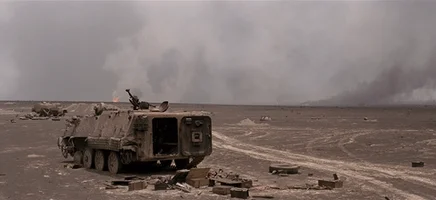Is the toxic legacy of the Iraq War deforming children
near US bases?

Iraqi children living near a U.S. army base have elevated levels of dangerous metals in their bodies and are more likely to suffer from birth defects, according to a new study.
These disorders at birth
can be severe and debilitating — including deformed limbs, congenital heart
defects, and brain defects such as spina bifida.
The study, though small,
adds to growing evidence that toxics from war — dispensed bombs, bullets,
detonation of chemical and conventional weapons, and burn-pit emissions—pollute
the environment and local people long after the battles are over, leaving a
toxic legacy from U.S. occupation.
"The past decade of
war in the Middle East evinces that overwhelming amounts of toxic metals have
been injected into the Iraqi environment through thousands of bombings and
millions of expended bullets," the authors wrote in the study published
today in Environmental Pollution.
The researchers went to Bint Al-Huda Maternal and Child Teaching Hospital in the Nasiriyah region of Iraq and examined 19 children lived near a U.S. Army Base— Tallil Air Base—and 10 children who lived away from the base, comparing the kids' contaminant levels and health problems.
The U.S. targeted Nasiriyah both in the early 1990s and 2003, and, according to the Department of Defense, open air burn pits have been used at Tallil Air Base starting in 2003.
"The U.S. maintains
stockpiles of radioactive material at bases, and also stockpiles ammunition
that has these things in it," lead author, Mozhgan Savabieasfahani, an
independent environmental toxicologist based in Ann Arbor, Michigan, told EHN.
They found that the most
severe birth defects and the highest levels of thorium—a radioactive byproduct
of depleted uranium—were found in children living closest to the United States'
Tallil Air Base.
Uranium is a heavy metal
that can remain in people's bodies for years after exposure. There are limited
studies on the link between the metal and birth defects, however, lab studies
have found depleted uranium can both increase DNA mutations and damage genetic information.
Savabieasfahani and
colleagues also found that children who lived near a U.S. base had roughly 28
times more thorium in their baby teeth compared to children living farther
away.
"All of those
things appear to be related – there's an association between place of residence
and distance to a military base and the measures of uranium and thorium in the
children," Savabieasfahani said. "The farther you live from a base
the less chance of birth defects."
Dr. Falah Basher,
co-author of the study and a pediatrician in Nasiriyah, told EHN these birth
defects set up children for "a lot of difficulties."
This can range from the
inability to walk or to do usual daily activities. "Some complained and
suffered difficulties in school activity in writing because have no hand or
deformed hands," he said.
Toxic legacy
Multiple previous
studies have concluded the U.S.-Iraq war left behind serious environmental
pollution:
A 2011 report found for every person killed in Iraq and Afghanistan, U.S.
soldiers fired roughly 250,000 bullets.
A 2007 UN report found about 1,000 to 2,000 metric tons of depleted uranium
was fired in Iraq in 2003 alone
There are more than 500
U.S. military bases in Iraq, many of which routinely detonate explosives, store
radioactive compounds and uranium-containing ammunition, and use burn pits to
get rid of things like explosives, batteries, electronics and plastics.
And this isn't the first
link between the war and health impacts on Iraq children: Doctors have been
raising the alarm about increased birth defects
and child cancers in
Fallujah, which was bombed by the U.S. in 2004, since 2005.
Savabieasfahani and
colleagues reported in a 2016 study "alarming" levels of lead in the baby teeth of
Iraq children with birth defects.
Such evidence caught
international attention and in a 2013 report the World Health Organization concluded that there was
"no clear evidence to suggest an unusually high rate of congenital birth
defects in Iraq." However, there was immediate and widespread backlash against the report.
The Lancet journal, for example, reported that several of the WHO's expert reviewers
raised concerns about the methods used in the study.
"We appreciate the
big and great sacrifices"
The health impacts
haven't been solely linked to Iraqi children: U.S. veterans have raised alarms
about the health consequences of military burn pits as well. A burn pit registry at the U.S. Department of Veteran Affairs has 183,950
participants.
However, "compared to US soldiers, who are temporarily exposed to war pollution, including burn-pit emissions,
Iraqis who live permanently in the area are exposed to toxic emission and a full range of war pollutants for much longer," the authors wrote adding that the exposed include growing children, elderly, pregnant mothers, and infants, who "are likely to be more susceptible to exposure to toxicants."
Savabieasfahani said
since she and others have been reporting these findings, she hasn't seen any
action from the U.S. military.
Dr. Basher expressed
gratitude for military sacrifices but told EHN that people in the US should
know the health toll he believes this has taken on the Iraq people.
"We appreciate the
big and great sacrifices … by USA to change our life and to help our people by
replacing the dictator government by a democratic one," Dr. Basher said.
"But the war was expensive and we pay till now."